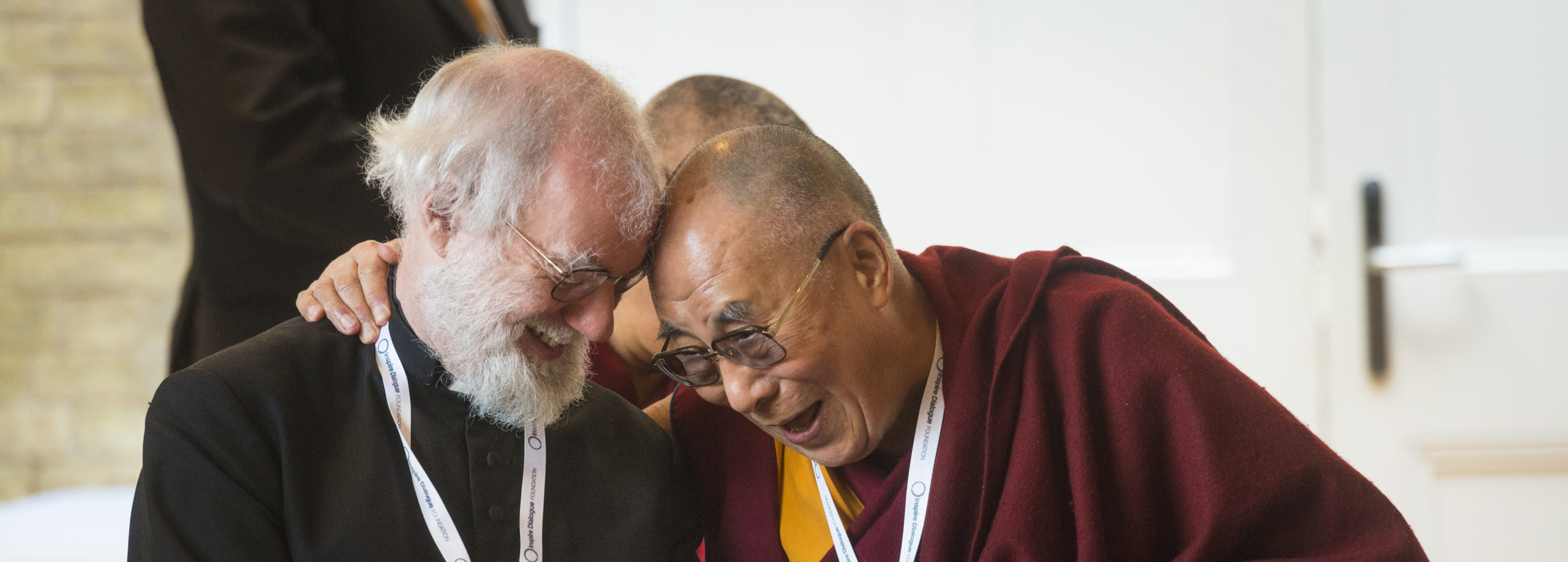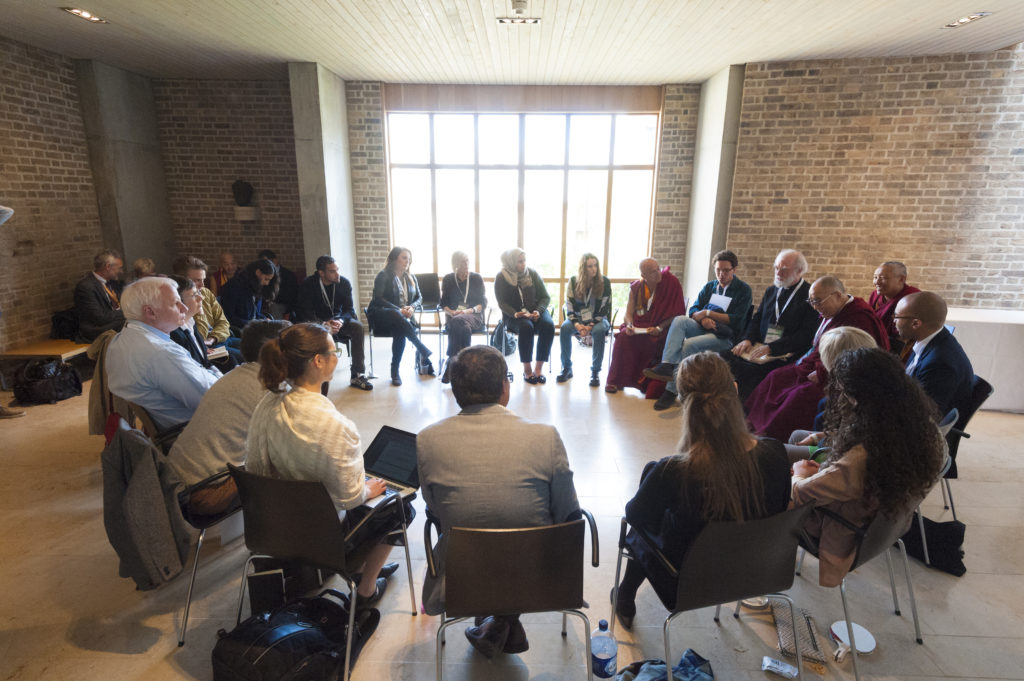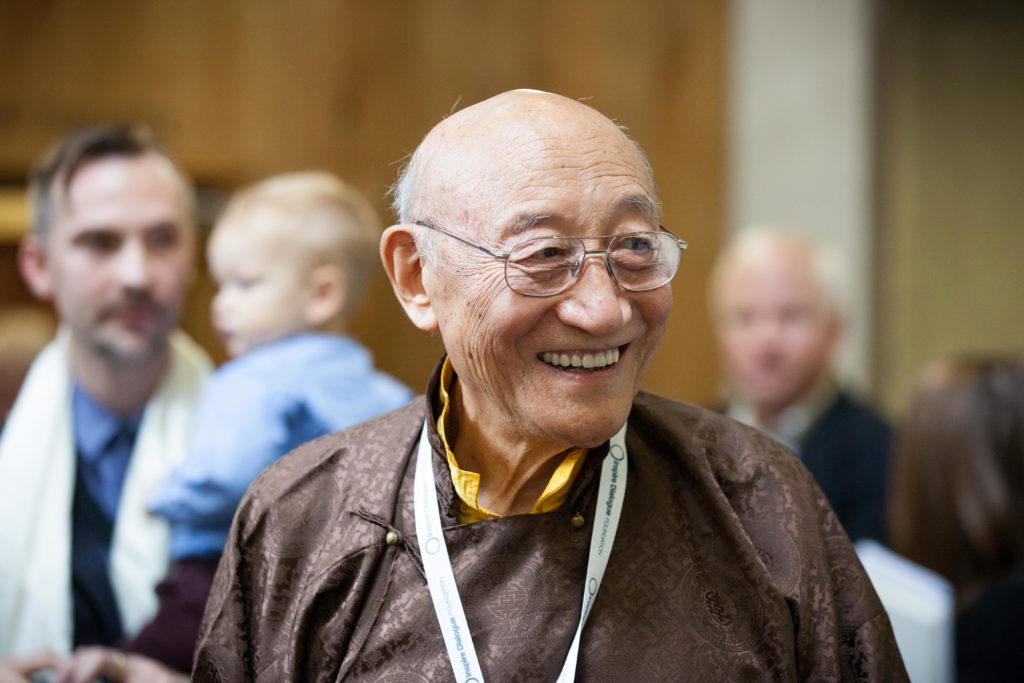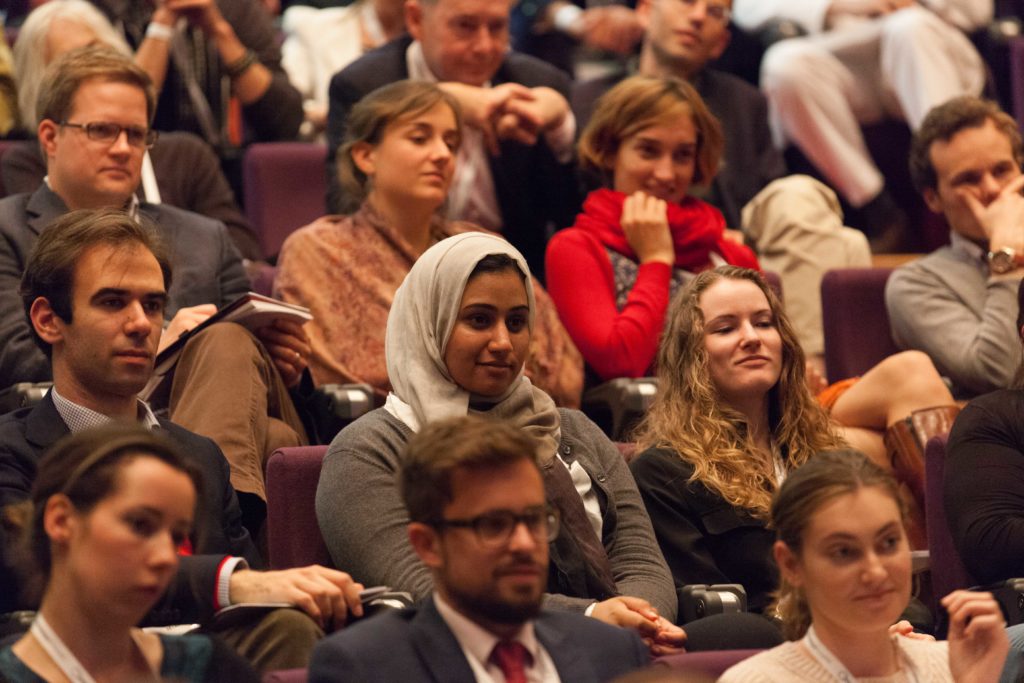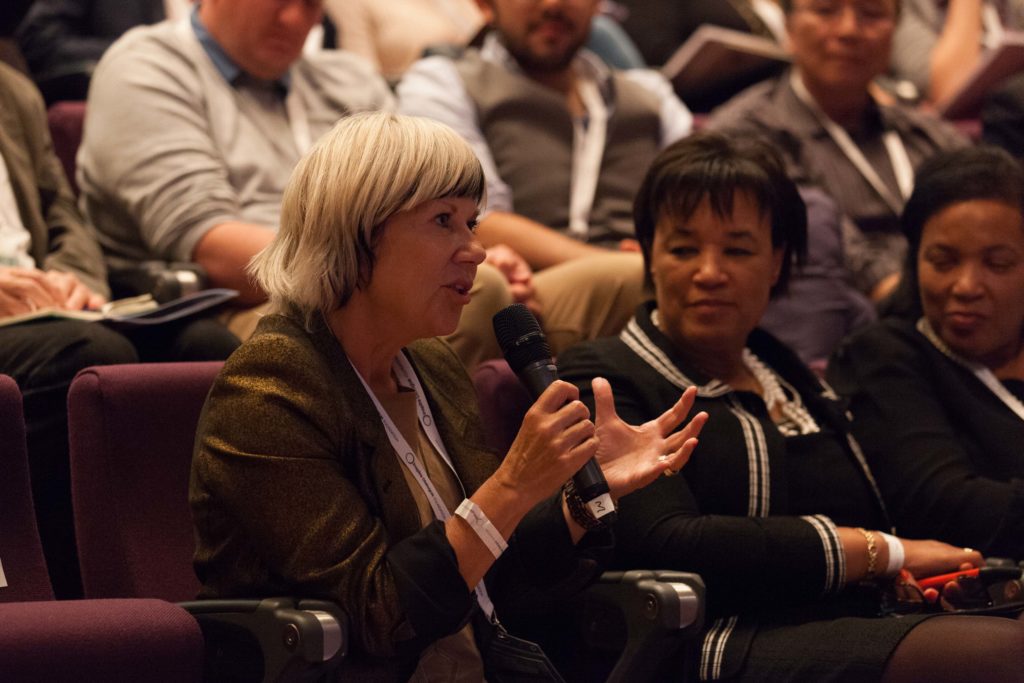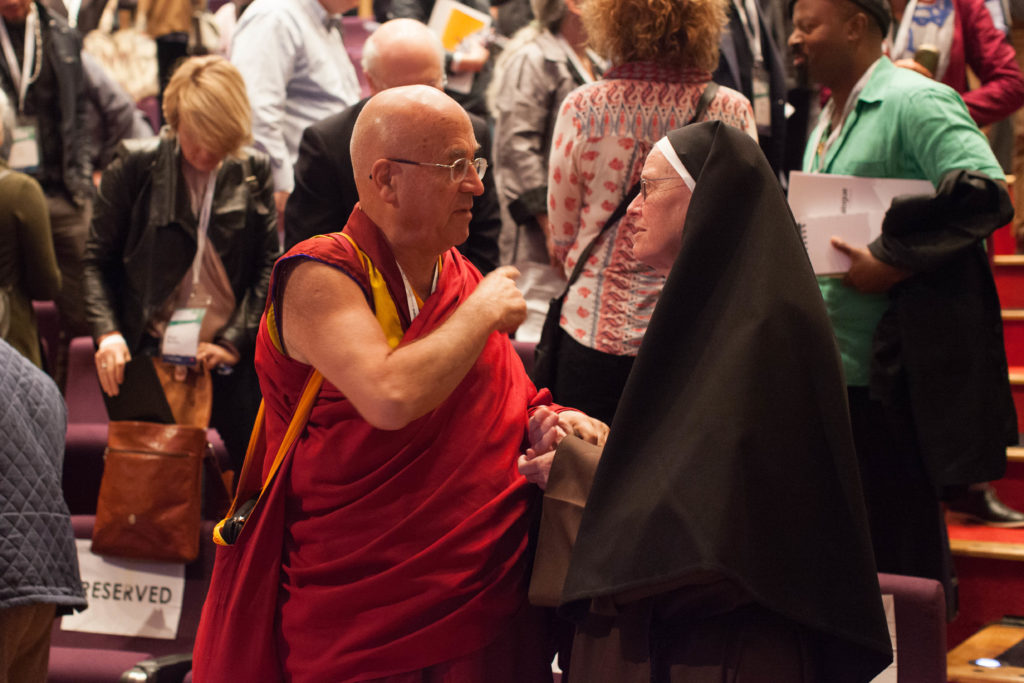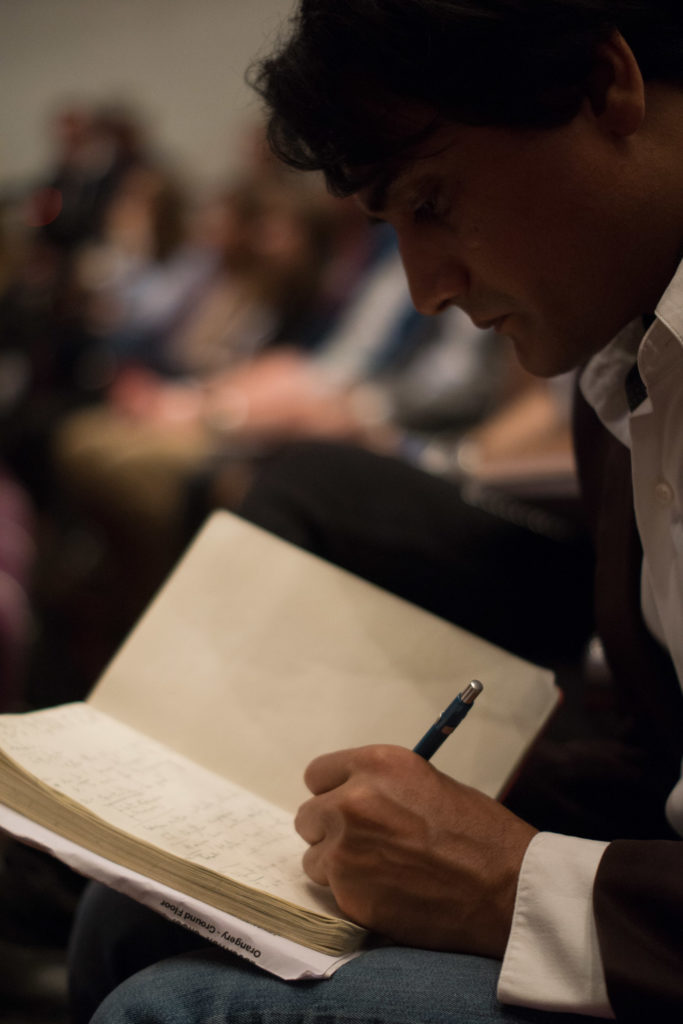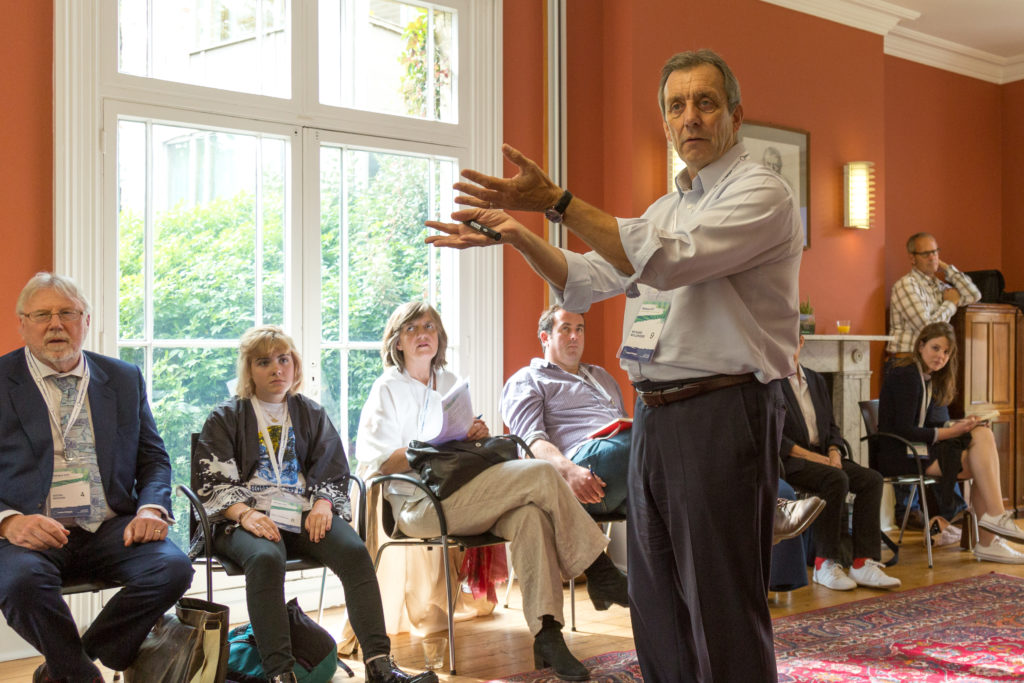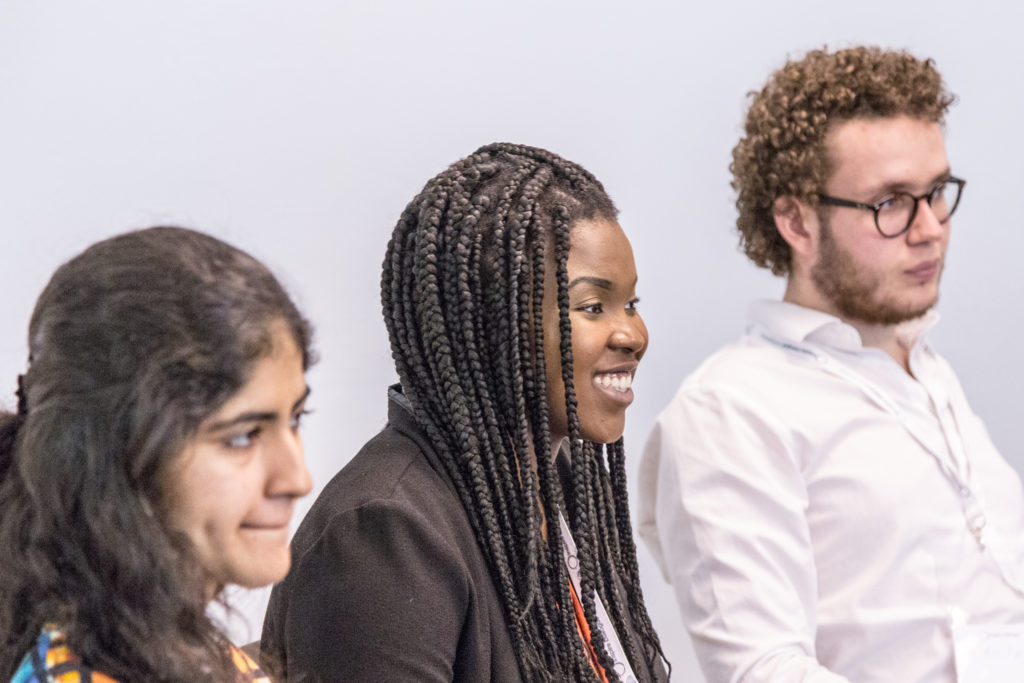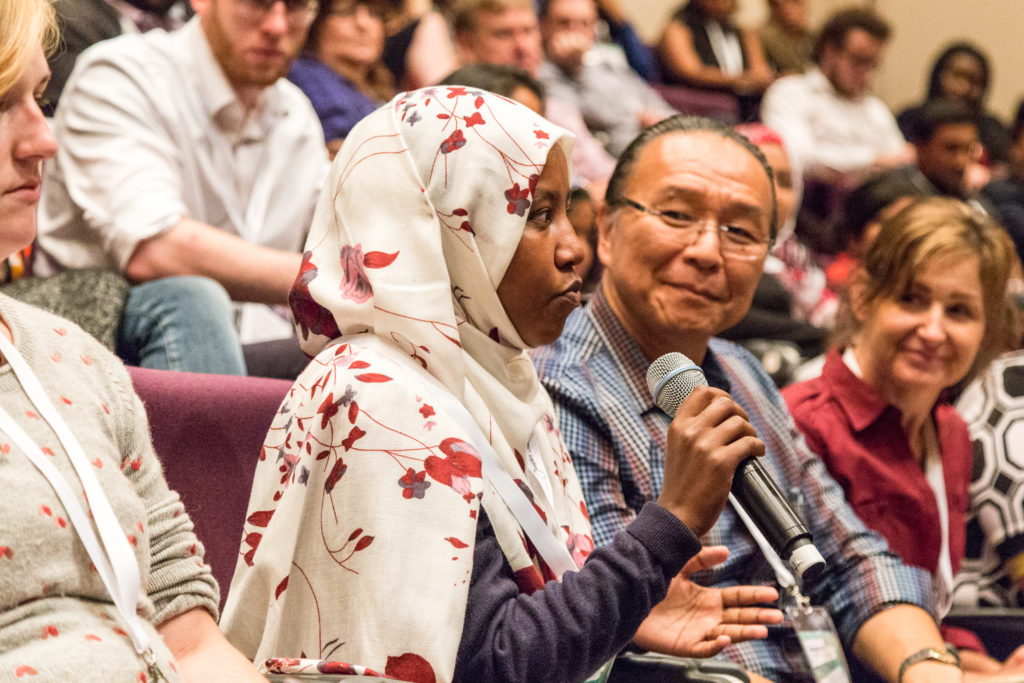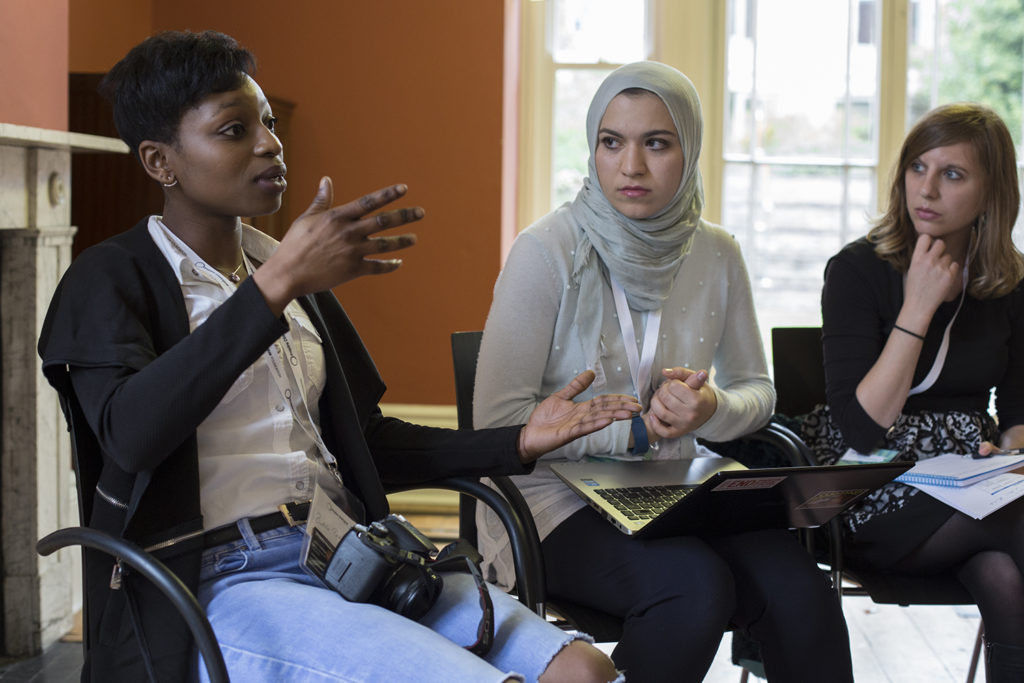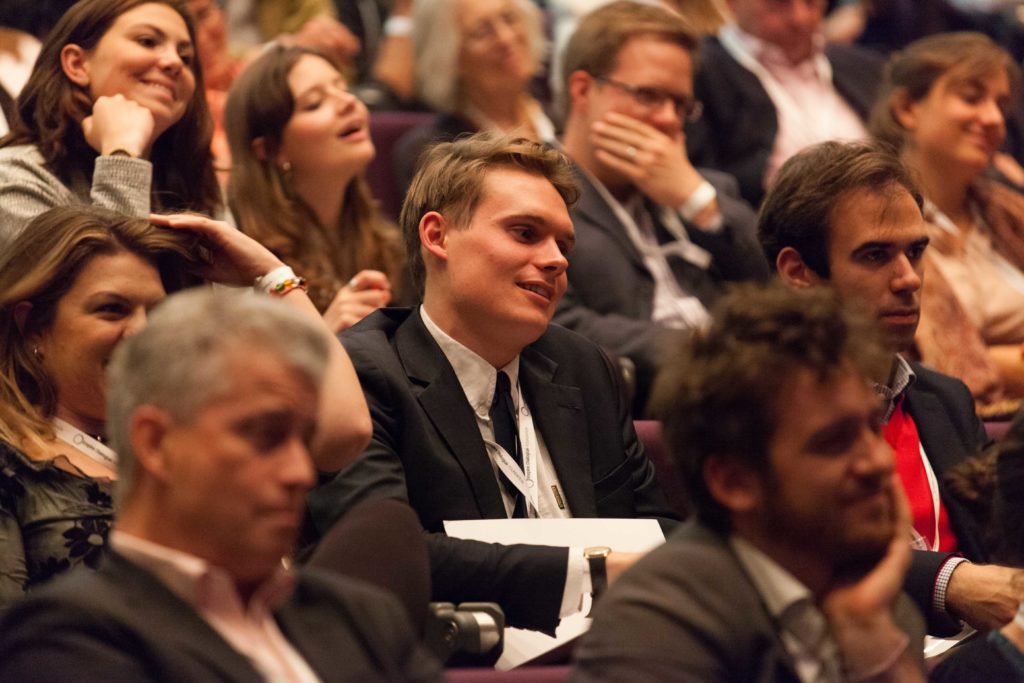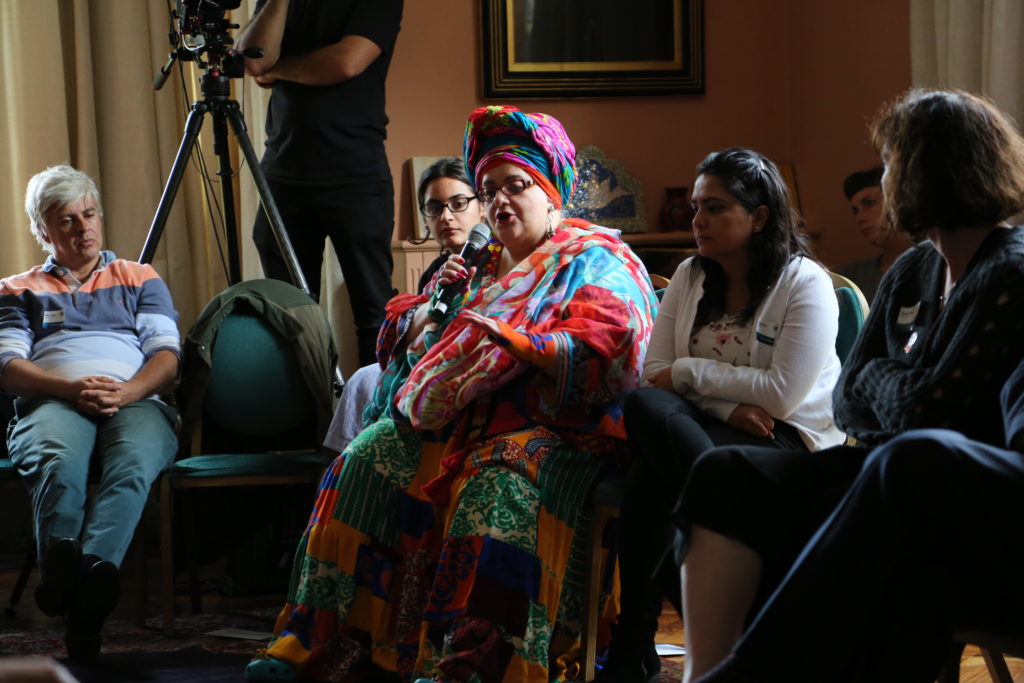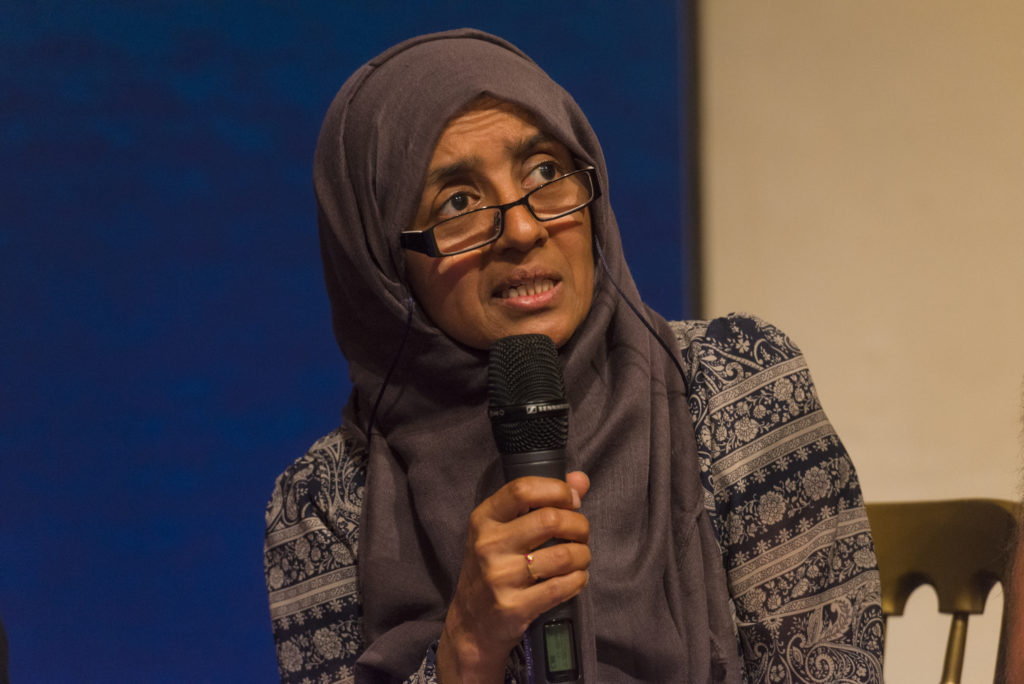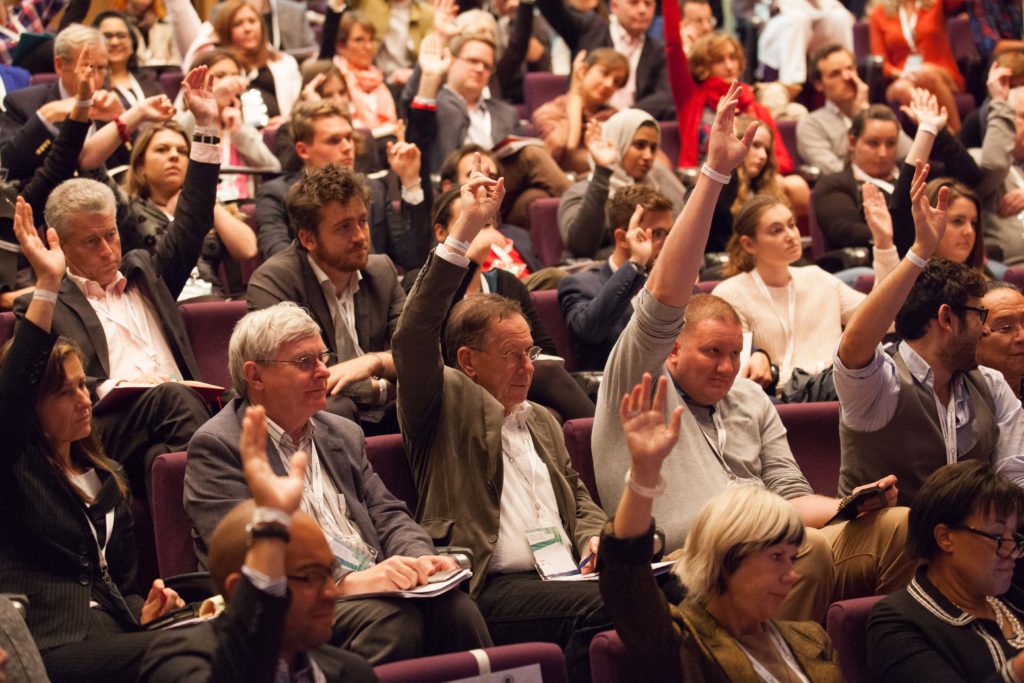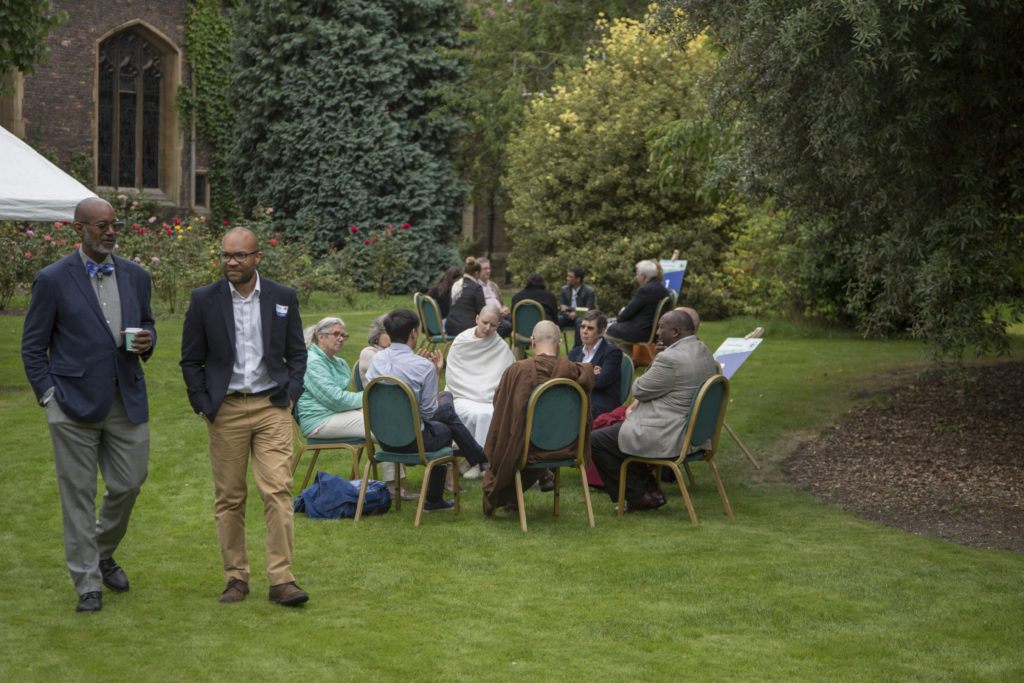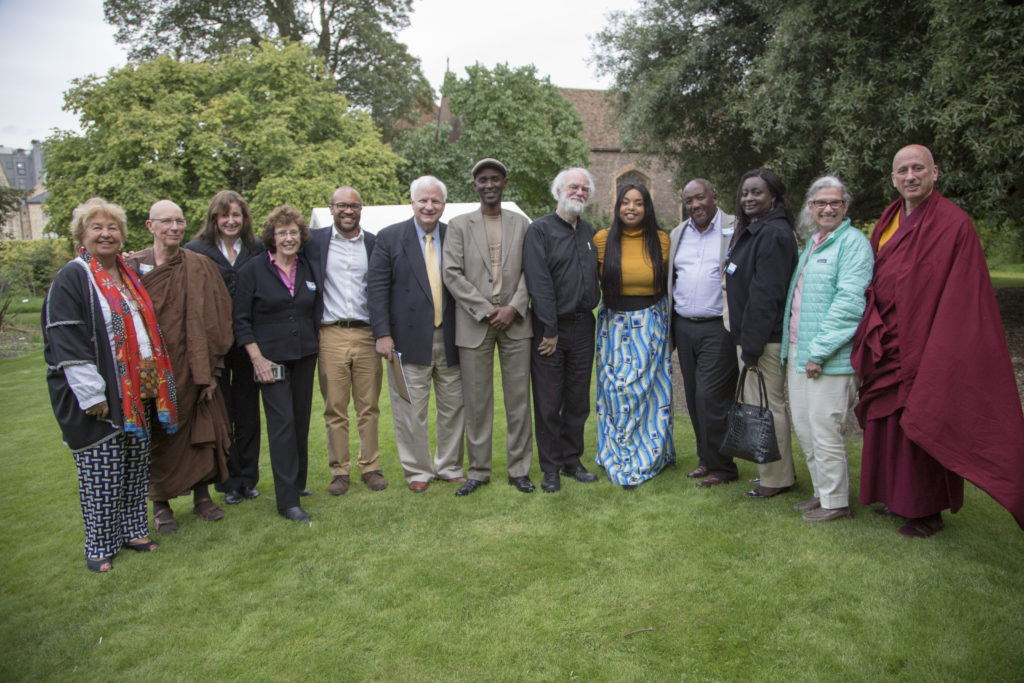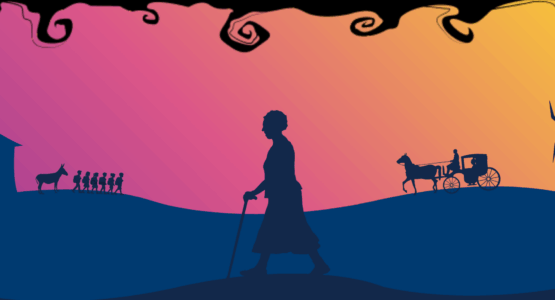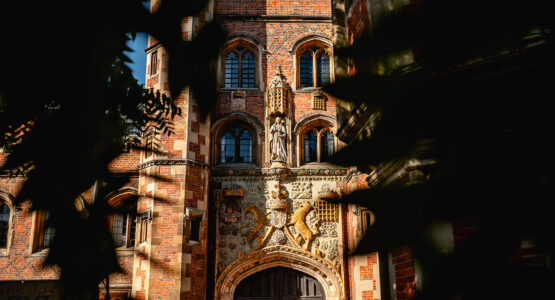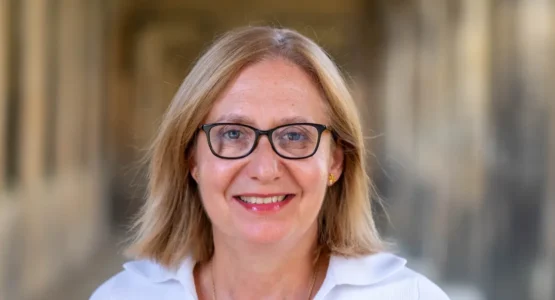Former Gates Scholar Cameron Taylor (2009) relates how he brought the Dalai Lama to Cambridge (twice!) and set up the Inspire Dialogue Foundation, which is committed to dialogue as a non-polarised and inclusive process for finding solutions to global issues.
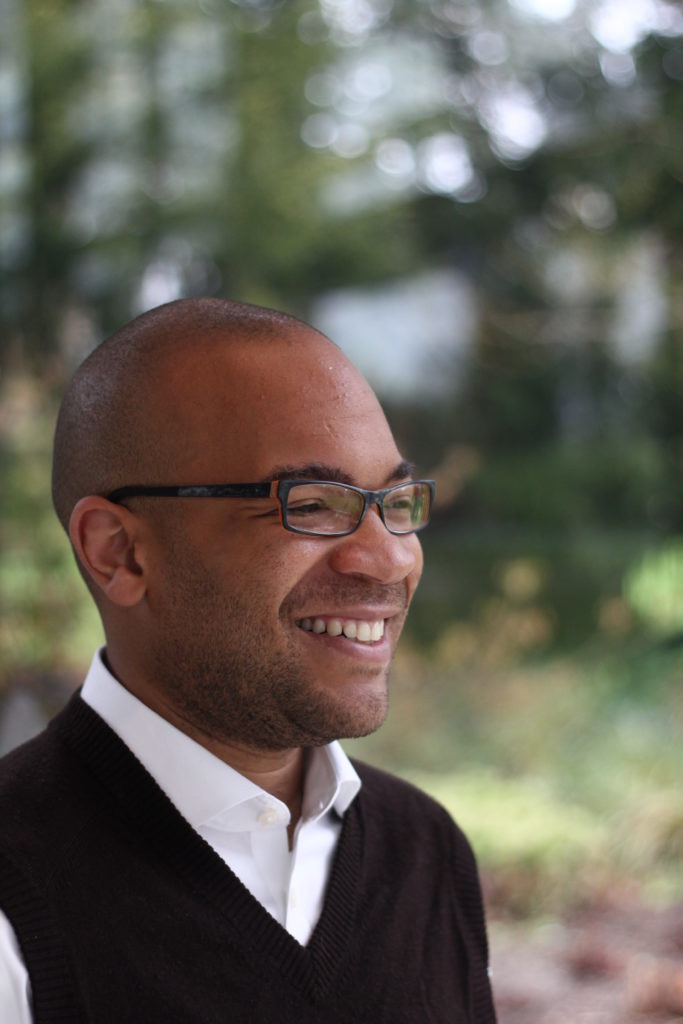
My years at St John’s were some of the most formative of my life, giving me a more global perspective and helping me to appreciate how interconnected the challenges that the world faces are.
I met a Tibetan monk, Geshe Sonam, in Cambridge one day while I was taking a break from research. He invited me for tea, and I learned that he was in the UK on a three-month language and culture excursion to help with his translation work. We became friends and I invited him to Choral Evensong and to one of the Master’s Lodge Concerts. Afterwards, Chris Dobson said to me, ‘You always bring around such interesting people.’ Before returning to India, Geshe Sonam suggested inviting the Dalai Lama to Cambridge because he could personally hand him the invitation. So I sent the invitation, and on Christmas day 2012 I received the response: he had accepted.
Immediately I met with Chris and he agreed to host His Holiness in the Master’s Lodge and to accommodate the entourage of 25 in College (fun fact: when Prince William came to study at Cambridge, Chris arranged for him to sleep in the same guest room that the Dalai Lama had slept in). The logistics were astounding but the visit went really well.
The Dalai Lama spoke twice in Chapel and once at the Cambridge Union, gave a press conference in the Old Divinity School and hosted the first meeting of Chinese students in the UK. Before he left, he told me that he would like to return to Cambridge ‘for dialogue rather than talks’.
When Rowan Williams returned to Cambridge, a friend introduced us and asked if he might be willing to host the Dalai Lama for this dialogue. He agreed, and we set up Inspire Dialogue Foundation both as a logistical vehicle and to side-step any diplomatic frictions.
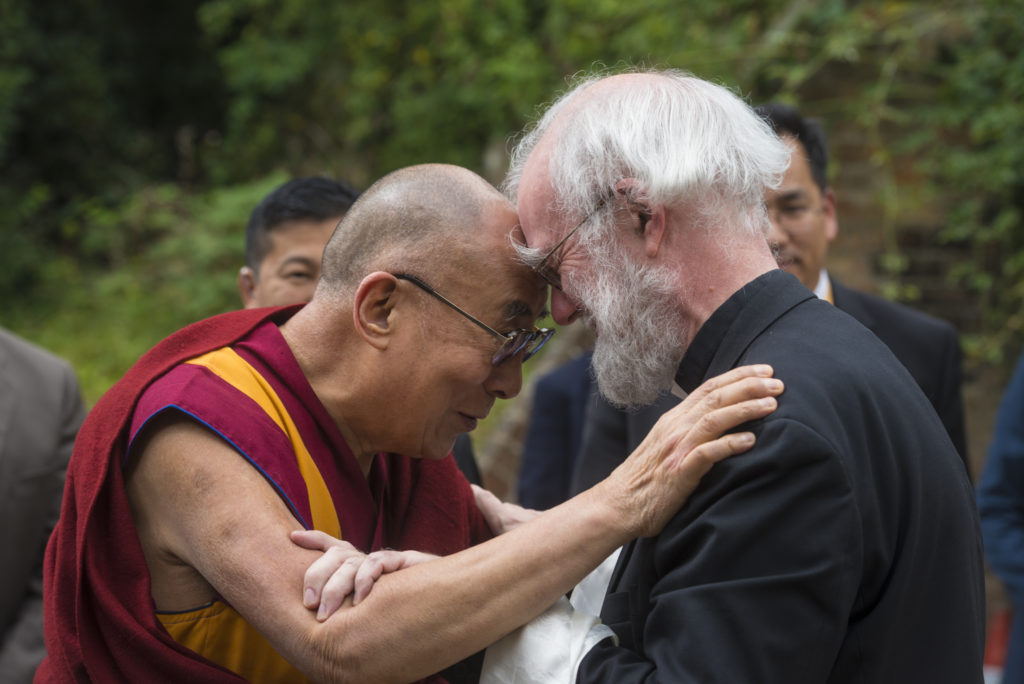
Photography: Ian Cumming / OHHDL
We operated from an office in the Master’s Lodge at Magdalene College. There we established a vision both to facilitate dialogue between people who might not normally meet and to provide a space for intergenerational, interdisciplinary encounters that might not otherwise occur.
After the initial dialogue with the Dalai Lama, which brought together a hugely diverse group, we continued to facilitate unlikely conversations.
Some great examples of this have included bringing asylum seekers from Syria and Afghanistan together with young black people from London, politicians, technologists, businesspeople and artists. We also arranged a dialogue between the daughter of the General of the Rwandan army at the time of the Genocide, a prominent Tutsi leader, playwrights, scientists, religious leaders and psychologists.
One year a retired hostage negotiator joined us and said that listening to another person is the most active way to demonstrate your respect for them and to build a genuine connection.
The learning that takes place is incredible when people listen to each other, and when discovery is the purpose of talking about a subject rather than proving a point.
Dialogue doesn’t require participants to counterargue, so there’s no need to mentally prepare what to say next while other people are talking. This allows participants to actively listen and to build relationships not arguments. We change the atmosphere when we choose to hear someone’s point of view rather than trying to convince them that our own perspective is superior.
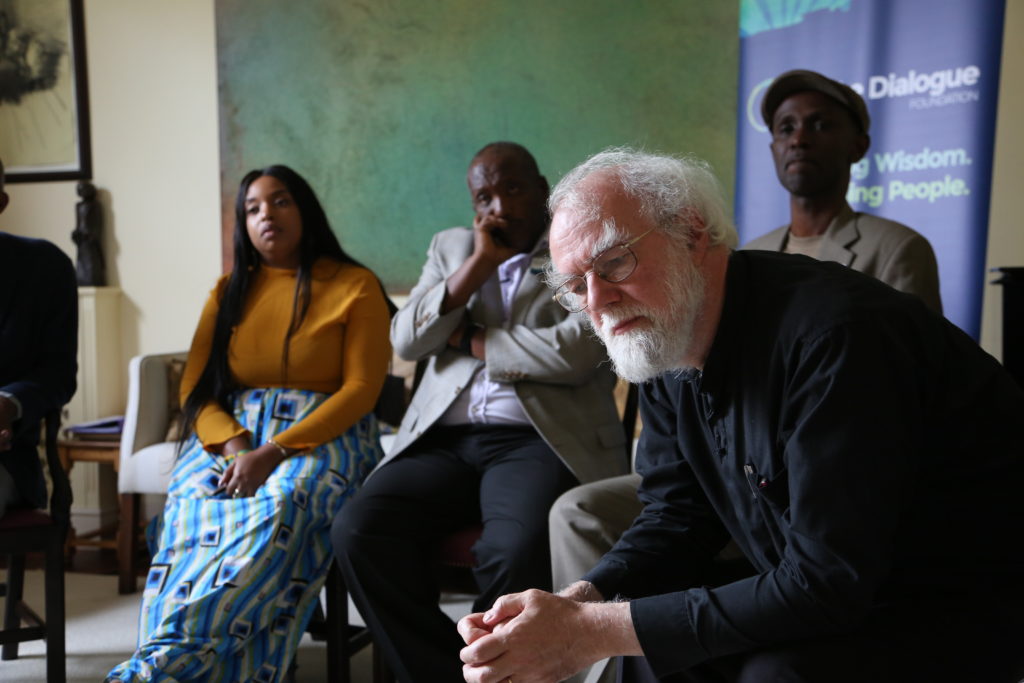
Sometimes people ask, ‘What is the dialogue for and what can it achieve?’. Rowan answers, ‘Our hope is to ignite a conversation around topics challenging the human community to develop a rich understanding of human dignity and human capacity.’
In past dialogues we have created educational materials for classroom use, provided a non-political platform for cross party talks, and delivered facilitation training. We have also fostered connections that have led to new appointments in the Rwandan government, asylum seekers receiving pro bono legal support, and civil society and industry leaders finding new networks for collaboration.
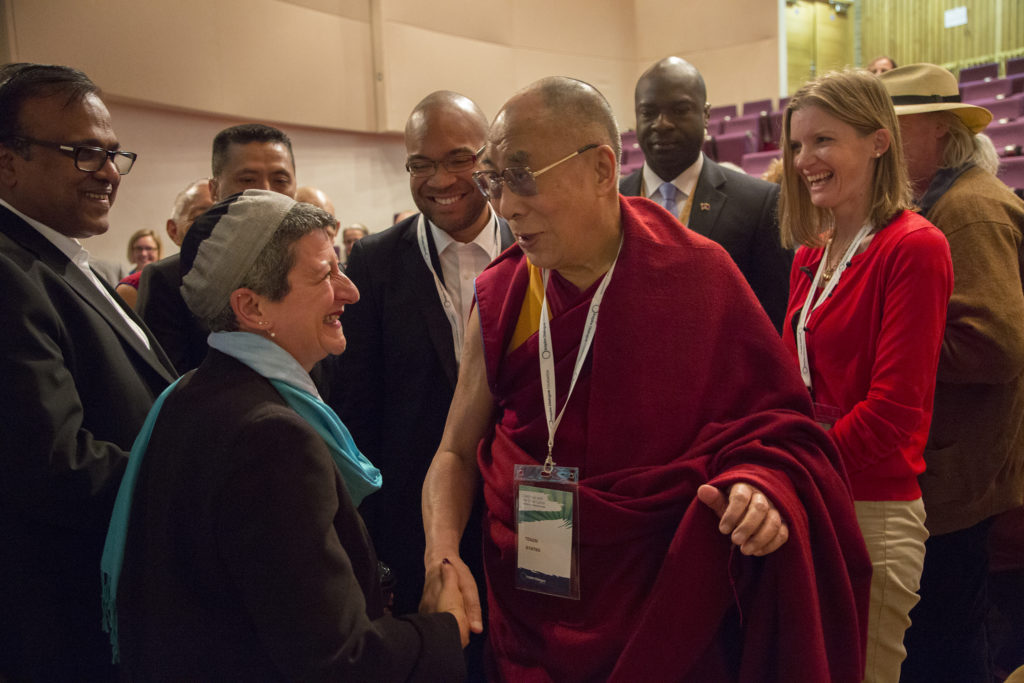
The outcome of these dialogues is always uncertain at the beginning, but we believe that the kinds of dialogues we ignite can help move society in the opposite direction to what we often hear about in the media. By engaging young people in public life and building relationships between people who might not otherwise meet, we can move towards a more hopeful future, one conversation at a time.
The Inspire Dialogue Foundation will participate in the Cambridge Festival on 29 March this year. Rowan Williams will host a virtual dialogue with Jude Kelly, director of Women of the World, and with Christian Picciolini, a former white nationalist leader who now works with governments to deradicalise people in hate groups. Events are open to everyone, and there is a mailing list that anyone can join through the Inspire Dialogue website.
Sign up to the Inspire Dialogue event >
Want to read more from Cameron? Look out for his article in the spring 2021 Johnian magazine, which will be published late April.

